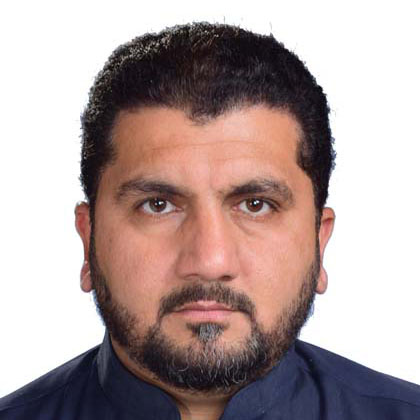Engineering Management (with optional Placement/Project year) MSc

The MSc in Engineering Management aims to enhance knowledge and skills in project and supply chain management including broader business management aspects.
Our MSc is designed to reflect the expectation that candidates joining the award will have some suitable technical education, knowledge and/or expertise. The MSc is also designed to have a strategic viewpoint, and so a market-facing perspective is embedded across the modules delivered.
Project and people management, innovation, supply chain management and finance are the key knowledge aspects of this degree and address broadly the requirements of the benchmarks in these key areas.
Our learning, teaching and assessment use extensively case-based approaches, which consider the strategic and operational aspects of the operations of business within the international context.
During the course, stakeholder perspectives are considered extensively, and the realisation of strategies incorporates many aspects of key functional and operational concerns for businesses.
There is an option to choose a Project/Placement year for this course, at an additional cost.
What You'll Study
If you choose a Placement or Project year, the Research Dissertation module will be replaced by a Placement or Project module.
The information listed in this section is an overview of the academic content of the course that will take the form of either core or option modules and should be used as a guide. We review the content of our courses regularly, making changes where necessary to improve your experience and graduate prospects. If, during a review process, course content is significantly changed, we will contact you to notify you of these changes if you receive an offer from us.
If chosen, your second year of study will consist of your Project or Professional Placement.
MODULES
- Professional Placement Option
- Professional Project Option
The information listed in this section is an overview of the academic content of the course that will take the form of either core or option modules and should be used as a guide. We review the content of our courses regularly, making changes where necessary to improve your experience and graduate prospects. If during a review process, course content is significantly changed, we will contact you to notify you of these changes if you receive an offer from us.

How we teach at the University of Chester
Learning and teaching includes lectures, seminars, discussions, presentations, tutorials, analysis of live case studies, and use of video. Learning opportunities such as these should enable you to apply elements of your academic learning to a real-life context.
For each 20-credit module, you will undertake two pieces of assessment. The Management Research Project will be in the region of 12,000-14,000 words. We use a diverse diet of assessment, including presentation, exams, essays, reports and portfolios, throughout the course.
Your Future Career
Job Prospects
The course is aimed at those who are looking to pursue a career in management in the engineering sector – i.e. those with a more technical background seeking management posts or for project managers who would benefit from a broader range of skills.
Careers service
The University has an award-winning Careers and Employability service which provides a variety of employability-enhancing experiences; through the curriculum, through employer contact, tailored group sessions, individual information, advice and guidance.
Careers and Employability aims to deliver a service which is inclusive, impartial, welcoming, informed and tailored to your personal goals and aspirations, to enable you to develop as an individual and contribute to the business and community in which you will live and work.
We are here to help you plan your future, make the most of your time at University and to enhance your employability. We provide access to part-time jobs, extra-curricular employability-enhancing workshops and offer practical one-to-one help with career planning, including help with CVs, applications and mock interviews. We also deliver group sessions on career planning within each course and we have a wide range of extensive information covering graduate jobs and postgraduate study.
Entry Requirements
2:2 honours degree
The normal entry requirement for students is the possession of a 2:2 honours degree in any discipline, or equivalent, as a minimum.
Applicants with non-standard qualifications will be considered for entry onto the course. Each application will be considered on its own merit.
2:2 honours degree
The normal entry requirement for students is the possession of a 2:2 honours degree in any discipline, or equivalent, as a minimum.
Applicants with non-standard qualifications will be considered for entry onto the course. Each application will be considered on its own merit.
See below for your country specific requirements. Please note, some programmes have special entry requirements and if applicable, these are listed below.
English Language Requirements
For more information on our English Language requirements, please visit International Entry Requirements.
Optional 2-Year Master's To Suit Your Needs
Choosing a Professional Placement MSc is a win-win for your career, giving you the chance to get real experience, apply your cutting-edge skills in the workplace and stand out to future employers.
In the first year you will have help from the University to find a placement, whilst developing your expertise. You will then spend your second year out in industry on placement, getting the chance to work with industry professionals and grow your network of industry contacts. Bringing the latest business school insights to industry, you will get to make a difference to the workplace and make lasting links with your employer.
Students need to find and secure their own placement, supported by the University. A preparation module will also help you to get ready for your placement.
Please note, this course is available as a one-year master degree course, or as a Two-Year Master's Course with a Professional Placement or Project. Please carefully consider your options when applying for our one year or Two-year routes as successful international applicants will not be able to change between courses after a Confirmation of Acceptance of Studies (CAS) letter has been issued or after arriving in the UK.
Fees and Funding
£9,090for a full-time course (2026/27)
Guides to the fees for students who wish to commence postgraduate courses are available to view on our Postgraduate Taught Programmes Fees page. Here you will also find information about part-time fees and project/placement year fees.
£15,500for a full-time course (2026/27)
The tuition fees for international students studying Postgraduate programmes in 2026/27 are £15,500.
Please note: For MSc programmes where a placement or project year is undertaken there will be an additional charge of £2,900 for the placement/project year (due at the start of the second year of the course).
The University of Chester offers generous international and merit-based scholarships for postgraduate study, providing a significant reduction to the published headline tuition fee. You will automatically be considered for these scholarships when your application is reviewed, and any award given will be stated on your offer letter.
For more information, go to our International Fees, Scholarship and Finance section.
Irish Nationals living in the UK or ROI are treated as Home students for Tuition Fee Purposes.
Your course will involve additional costs not covered by your tuition fees. This may include books, printing, photocopying, educational stationery and related materials, specialist clothing, travel to placements, optional field trips and software. Compulsory field trips are covered by your tuition fees.
The University of Chester supports fair access for students who may need additional support through a range of bursaries and scholarships.
Full details, as well as terms and conditions for all bursaries and scholarships can be found on the Fees and Finance section of our website.






.jpg)



.jpg)

